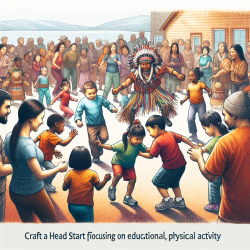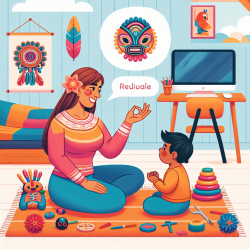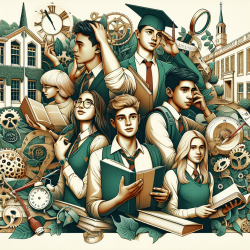The "Got Neqpiaq?" study presents a groundbreaking approach to integrating culturally relevant physical activities into the curriculum of Alaska Native Head Start programs. This initiative highlights the importance of community involvement and cultural sensitivity in developing effective educational materials. By examining the outcomes of this research, practitioners can enhance their skills in creating engaging and meaningful learning experiences for children.
The Need for Culturally Relevant Physical Activity
The study emerged from concerns voiced by Elders, teachers, and parents about the misalignment of traditional playtime activities with local Alaska Native culture. The collaborative effort between the Alaska Native Tribal Health Consortium and Rural Alaska Community Action Program aimed to address these concerns by developing a physical activity guide tailored to preschool-age children in rural Alaska.
This guide includes descriptions of activities, lesson plans, flashcards, and photos of traditional Alaska Native games. The community engagement process was crucial in ensuring the guide's adoption and implementation, as it fostered a sense of ownership among community members.
Implementing Research Outcomes in Practice
Practitioners looking to implement similar initiatives can draw valuable lessons from this study:
- Community Engagement: Actively involve community members in the development process to ensure the content is culturally relevant and widely accepted.
- Cultural Sensitivity: Incorporate traditional activities that resonate with the local culture to foster a sense of identity and belonging among children.
- Participatory Approach: Use a strength-based and participatory approach to empower communities and encourage their active participation in educational initiatives.
- Sustainability: Develop long-term partnerships with communities to ensure the sustainability of culturally driven educational programs.
The Role of Practitioners in Fostering Cultural Relevance
The success of the Got Neqpiaq? study underscores the importance of practitioners being open to learning from and collaborating with communities. By doing so, they can create educational materials that are not only effective but also enrich children's understanding of their cultural heritage.
This research serves as a call to action for practitioners to explore further how culturally relevant education can be integrated into various settings. By adopting similar methodologies, educators can contribute to more inclusive and engaging learning environments that respect and celebrate cultural diversity.










